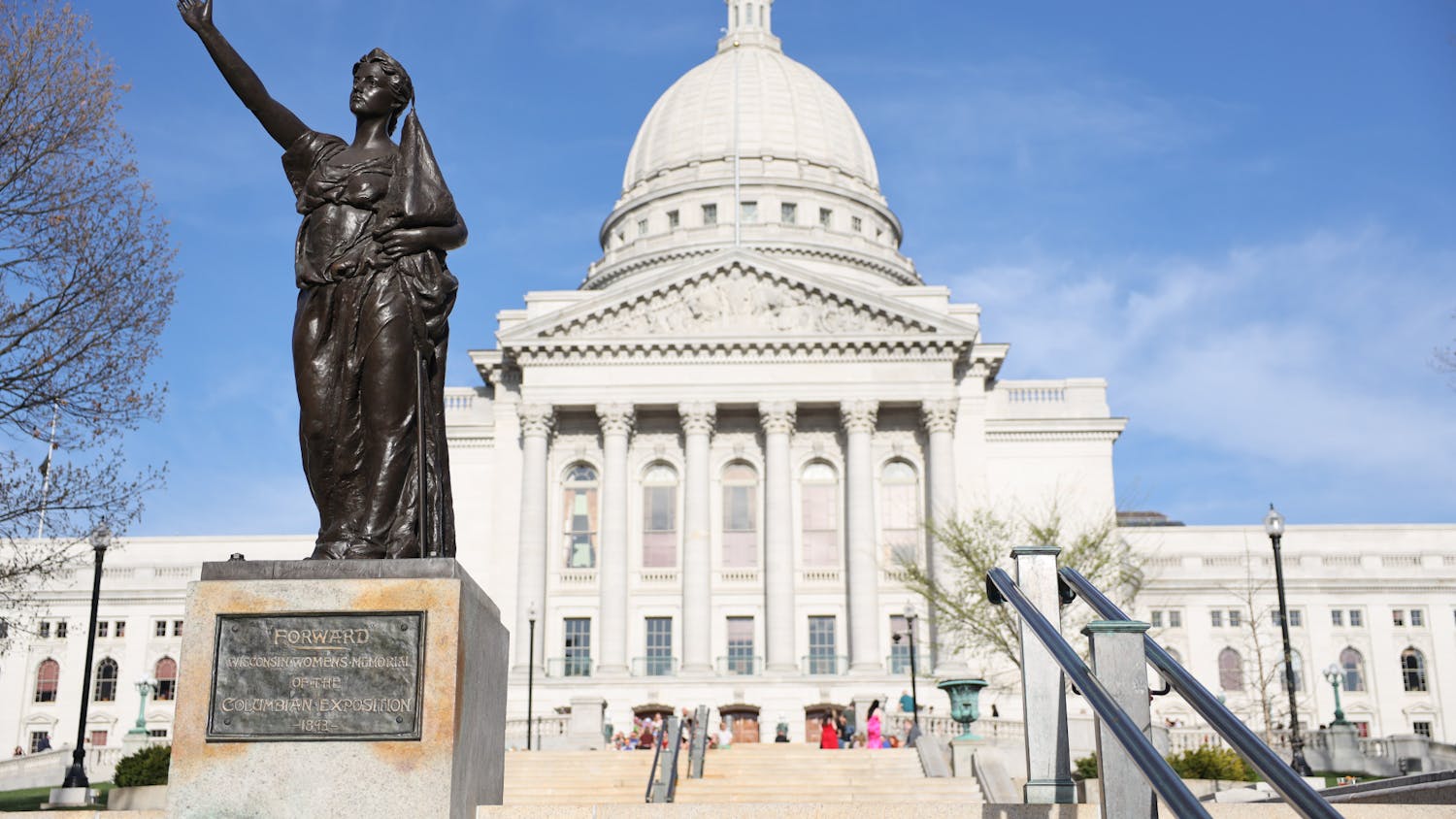Legislators across the state are attempting to mitigate unemployment issues held by formerly incarcerated people by supporting expungement reform. There have been no major changes in the expungement legislature recently, making legislators believe that updates are needed even though others oppose changes on transparency grounds.
Expungement occurs when a person convicted of a crime has their record sealed by the government, meaning that public parties cannot view the information. This allows for those who have served their time to have better employment opportunities.
Incarcerated people in America have an unemployment rate of over 27 percent compared to the overall national unemployment rate of about six percent, as shown by the Prison Policy Initiative.
State Representatives David Steffen, R-Green Bay, and Evan Goyke, D-Milwaukee, led a group of 54 representatives and 17 senators in officially introducing a new bill to alter the current guidelines on expungement Feb. 22.
“These common sense bipartisan reforms will help people reclaim their lives, enter the workforce, and avoid discrimination and collateral consequences that their criminal record can cause even after they’ve served their sentence and became a productive and contributing member of society,” Sen. Lena. Taylor, D-Milwaukee, said in a statement.
If enacted, the proposed bill will grant any person convicted of a crime that is a non-violent Class H felony — a crime that may be punished with up to six years in prison — or below the opportunity petition, for expungement of their criminal record.
The bill would also allow the individual to petition for expungement after they have served their sentence, rather than only at the time of sentencing.
“What that will do is provide incentive for people to comply with all of the rules of their sentence. They’ll have the chance to come back and ask for expungement,” Goyke said. “That’s really important when you think of the psychological effects of somebody who is trying really hard to rehabilitate themselves, who is putting the effort in but is kind of handcuffed by the criminal conviction.”
The current statutes in place allow expungement for individuals who were 25 years old or younger when they committed their crime.
Goyke, who has worked on the issue of expungement for the past seven years — the entirety of his time in office — said is the best version proposed.
While many people agree this expungement bill will be a step in the right direction, John Eason, a faculty member of UW-Madison’s sociology department, explained why this may not be enough, suggesting the bill should expand beyond Class H offenses.
“I think it actually should be expanded to violent crimes because research shows you’re most likely to commit a crime as a male between 16 and 30, a violent crime in particular,” Eason said. “It should just be a certain age, a certain distance from your crime.”
Some experts believe the current expungement laws should remain, taking concern with removing criminal records from public databases.
Bill Lueders, the president of the Wisconsin Freedom Information Council, wrote an article discussing these concerns. He emphasized the point that, “the people of Wisconsin … can be trusted to know the truth about what happens in our courts.”
Eason further criticised the bill, acknowledging its value, but also acknowledged it as a “baby step.” He pointed to other issues, like technical parole violations, which he believes would reduce the number of people incarcerated.
“There are huge things, like the fact that we have the recidivism rate in this state that we do, and that’s racially disproportionate,” Eason said. “Expungement is one thing that can help start to get at that.”
A study conducted by researcher Devah Pager focusing around race, criminal background and employment in 2003 showed that a white man with a criminal record is more likely to be called back for a job than a black man with no criminal record in Milwaukee. This experiment has been recreated over the years in different cities, each time producing the same results.
When asked if there were plans to expand expungement to be available for any level of crime, Goyke said, “at this point, I don’t know,” but explained why current lawmakers are focused around altering the age requirement rather than the class of crime requirement.
“We arrived at the crime eligibility because it’s current law,” Goyke said. “The Wisconsin Policy Forum did a report on expungement and they highlighted what changes give you the most impact … and they came up with the age being far more important than the expansion of more felonies being included.”
While legislators have not directly addressed these concerns, some of them have discussed getting rid of the Wisconsin Circuit Court Access record system altogether.
Parties in support of the bill agree that if it is passed, it will be a breakthrough in Wisconsin legislature since no major changes in current law regarding expungement have occurred in the last seven years. People are also in agreement that this is just the first measure that Wisconsin needs to take to create equity in unemployment rates.
“What I’d like to start to do is have a process where the facts of the case matter more than the level of a conviction,” Goyke said, acknowledging that people who receive convictions for anything above a Class H felony cannot and will not be able to petition for expungement, whether their crime is violent or not.
Although the authors of the bill have not publicly discussed future plans for expungement, Goyke believes this is where the expungement conversation should head if the bill passes.
“I admit that there are things that we should continue to look at and address for expungement in Wisconsin even after this bill goes through,” Goyke said. “But this is a huge step in the right direction; really an important step.”
state news writer






